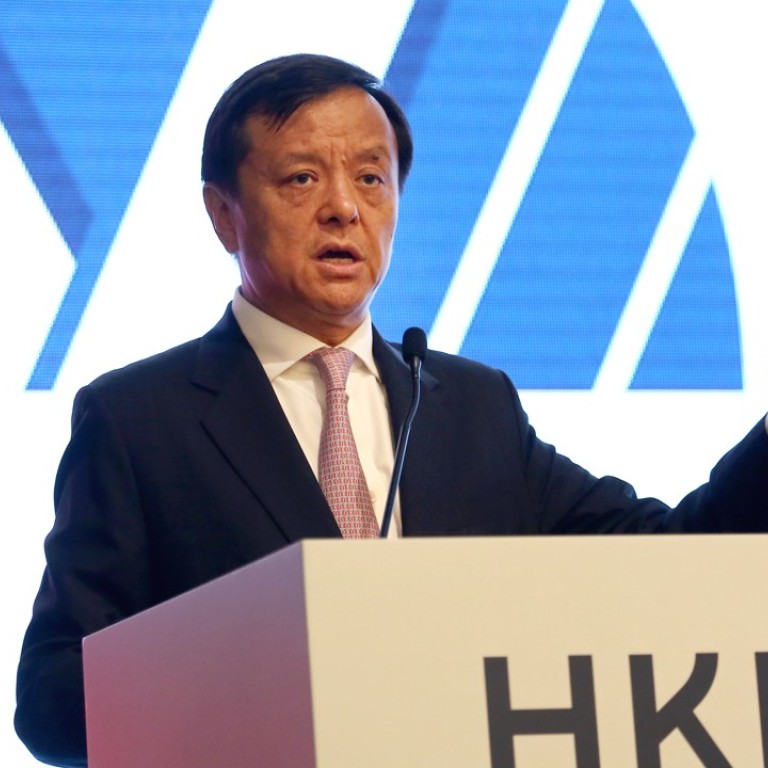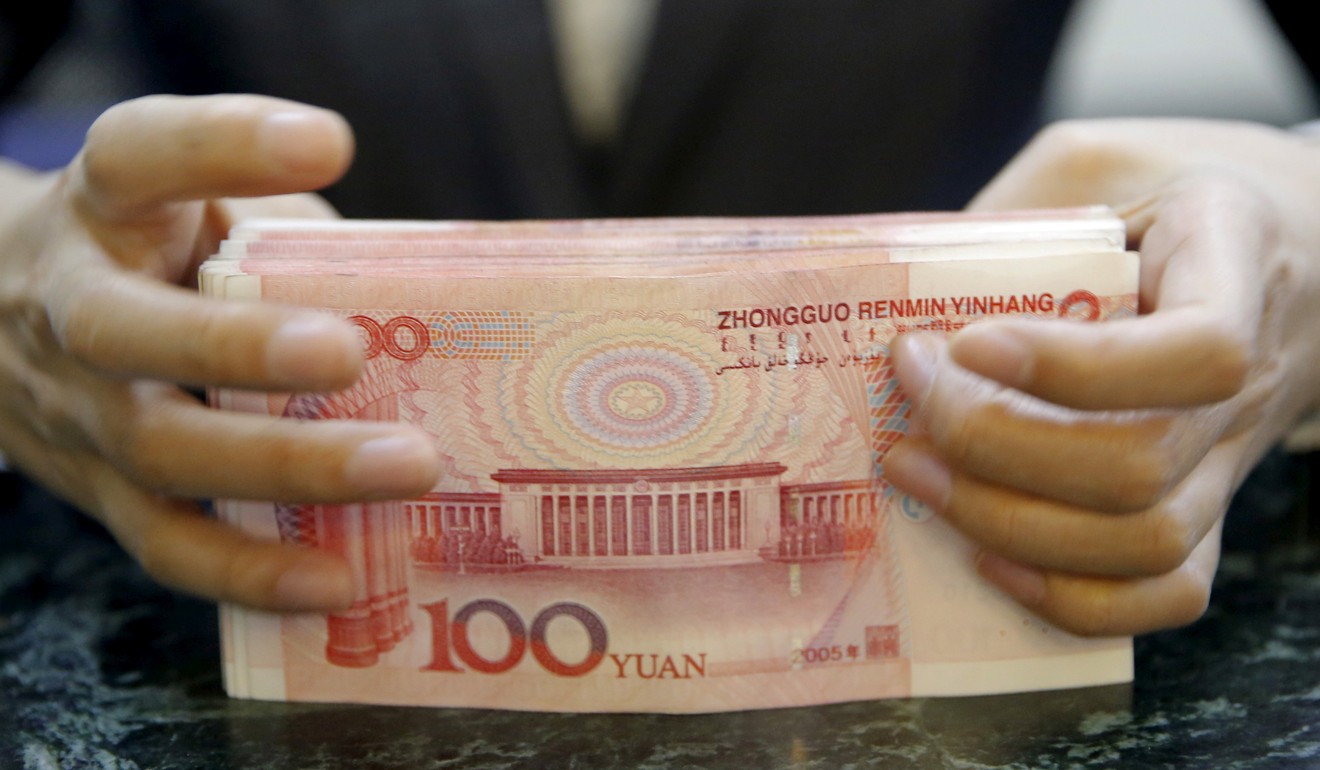
Bond Connect will help Hong Kong develop its own fixed income and derivatives market
HKEX chief executive Charles Li Xiaojiao admitted on Thursday that Hong Kong is not traditionally known as a fixed income market, nor a sovereign debt issuer.
But he insisted it will be working hard in the months and years ahead to ensure a competitive number of fixed income and derivatives offerings will be available in the city, after the creation of its Bond Connect trading link with China, bringing the nation another step further to internationalising the yuan and boosting the chances of being included in global bond indices.
Under Bond Connect, overseas investors will be able to invest onshore through Hong Kong trading infrastructure, making China’s market much more accessible to offshore parties, including institutional investors.
“We need to transform ourselves from being just a cash and equity single trick pony,” he told a briefing on Thursday in Hong Kong.
“Hong Kong wants develop its own fixed income and derivatives market to become a truly global financial centre. There are hundreds of equity markets in the world, but only a handful of derivatives, interest rate and credit markets,” Li said.
Connect is designed to use Hong Kong’s settlement facilities to act as the “nominee bond holder” on behalf of offshore investors, allowing them to continue to use offshore global custodians rather than needing to open onshore settlement accounts under the previous China interbank market direct access scheme.
China has been building a capital market with infrastructures different from international standards. But the Bond Connect is expected to help reconcile these differences and will be significantly more convenient to use for international investors than existing bond access channels namely the QFII, RFII and China Interbank Bond market direct access scheme.

The chief executive of Hong Kong Exchanges and Clearing (HKEX) said it could be some time before mainland bonds are freely traded via Hong Kong, but he will ensure the types of investment available will be attractive to global investors into the China’s bond market, using the Connect.
The city does not yet have the natural ingredients to become a fixed income market as it is not a sovereign issuer, and its currency is pegged to the dollar, he added.
China will unlikely open up the Southbound channel in the first couple of years, and the Bond Connect is likely to have a number of restrictions placed on it initially because China is just at the beginning of opening up its market, he said, and understanding the differences with it and the international market.
Hong Kong wants develop its own fixed income and derivatives market to become a truly global financial centre. There are hundreds of equity markets in the world, but only a handful of derivatives, interest rate and credit market
Li said China now is a capital excessive country which needs to deploy that national wealth on the global scene. Money is trapped inside, he added, but southbound flows through the Connect system are going to be in trillions in dollar in the coming decade.
China has an intuitive urge to control, which they can do so in its own market, Li said, adding “they can really dictate who can do what”.
But the fixed income market outside of China is a form of currency, and needs to be easy to use and access.
That’s why Bond Connect will allow users without their own legal and operational compliance apparatus in place or sufficient resources to obtain exposure to China’s domestic market, Li said.
Restrictions will be kept in place until the Chinese regulators are comfortable. But as confidence builds, hopefully those will disappear and Hong Kong will help make it gradually more like an international, open market, Li added.
Hong Kong also now plans to develop a bigger Chinese treasury bond futures programme, based along Chinese regulatory operations and supervision in the next year, after launching a pilot programme this year, Li said.
HKEX and China Foreign Exchange Trade System (CFETS) announced on Wednesday they had teamed up to prepare for Connect. The venture, the Bond Connect Company, will handle admission and registration for international investors who want to trade mainland bonds and support trading services related to the new debt-trading link.
China is the world’s third-largest bond market, worth US$7.5 trillion, after the US at US$35 trillion and Japan at US$11 trillion.
Justin Chan, co-head of global markets at HSBC, said: “Bond Connect marks an exciting step forward in China capital account liberalisation.
“Overseas investors are able to invest onshore through Hong Kong trading infrastructure, making China’s market much more accessible to offshore parties, including institutional investors.
“Retail investors are expected to participate indirectly by leveraging asset managers, with a wide range of global investors expected to benefit from this diversified scheme.”

